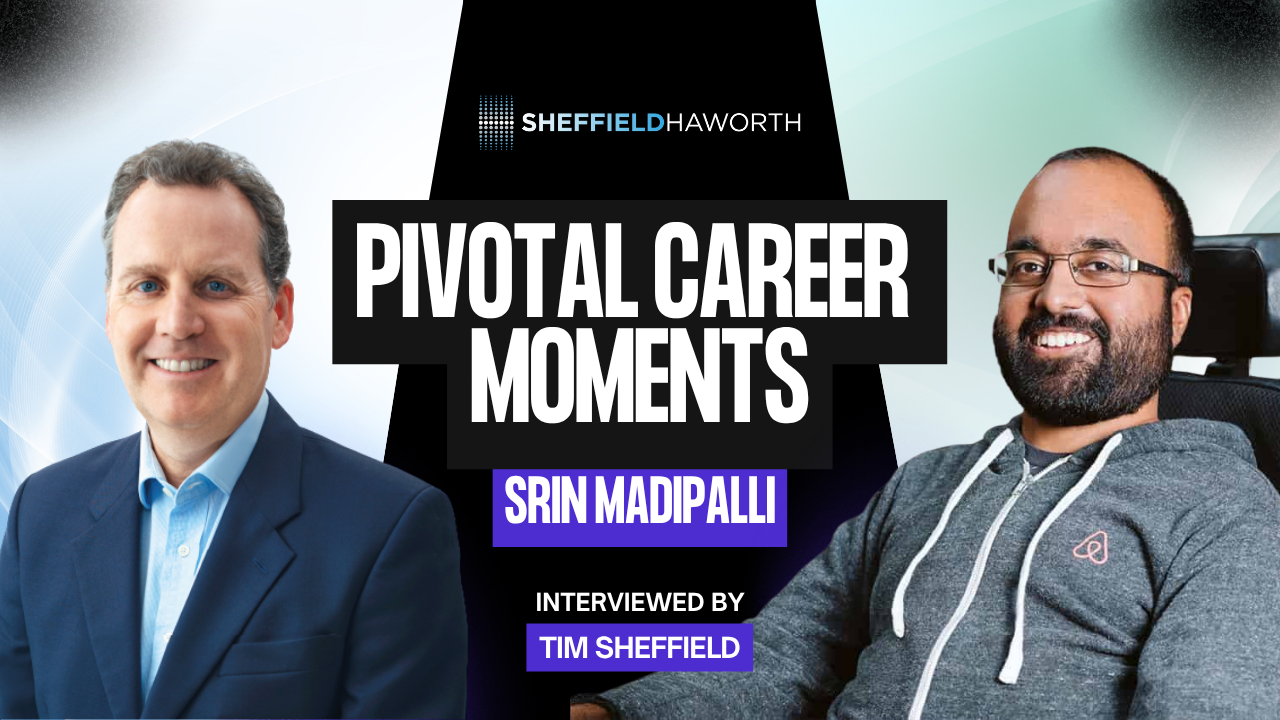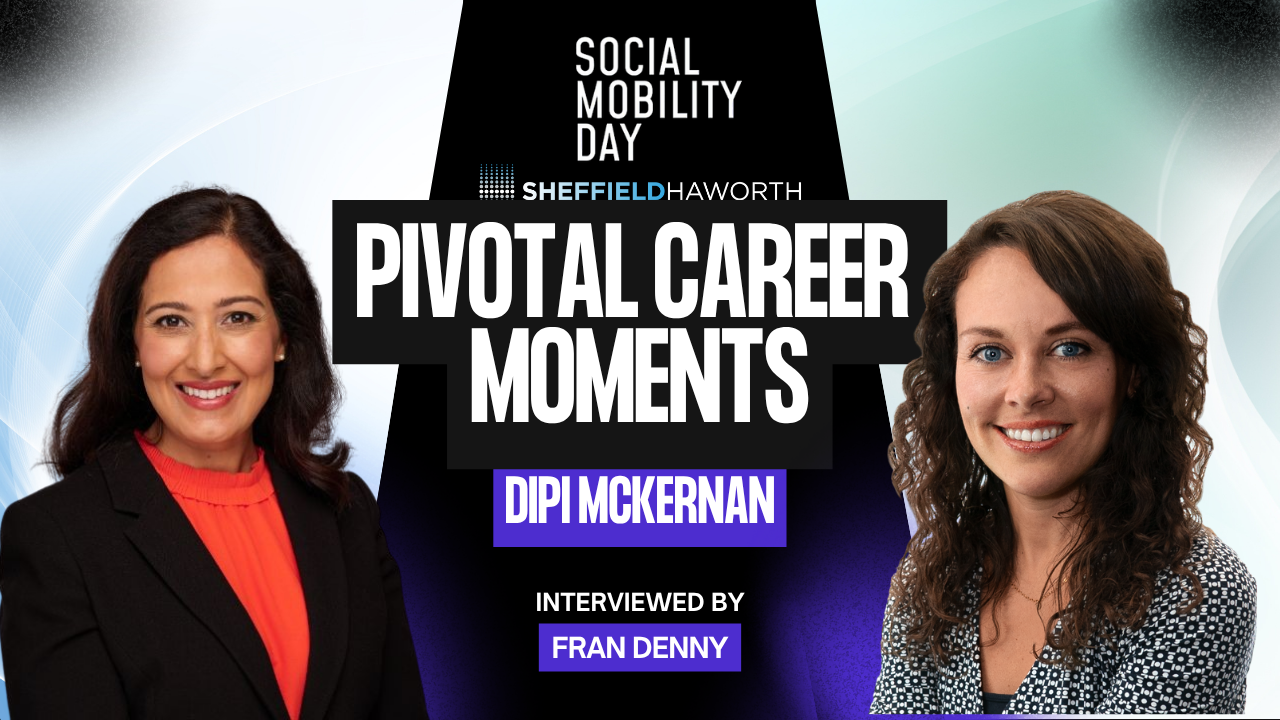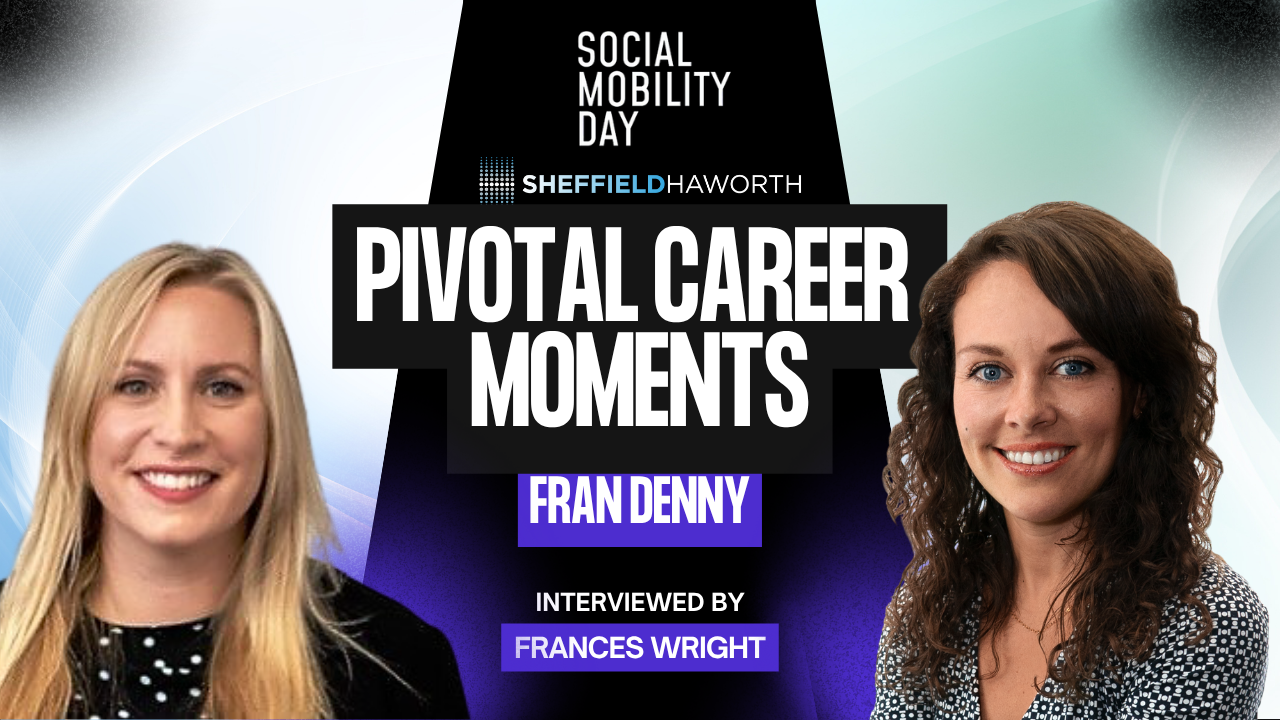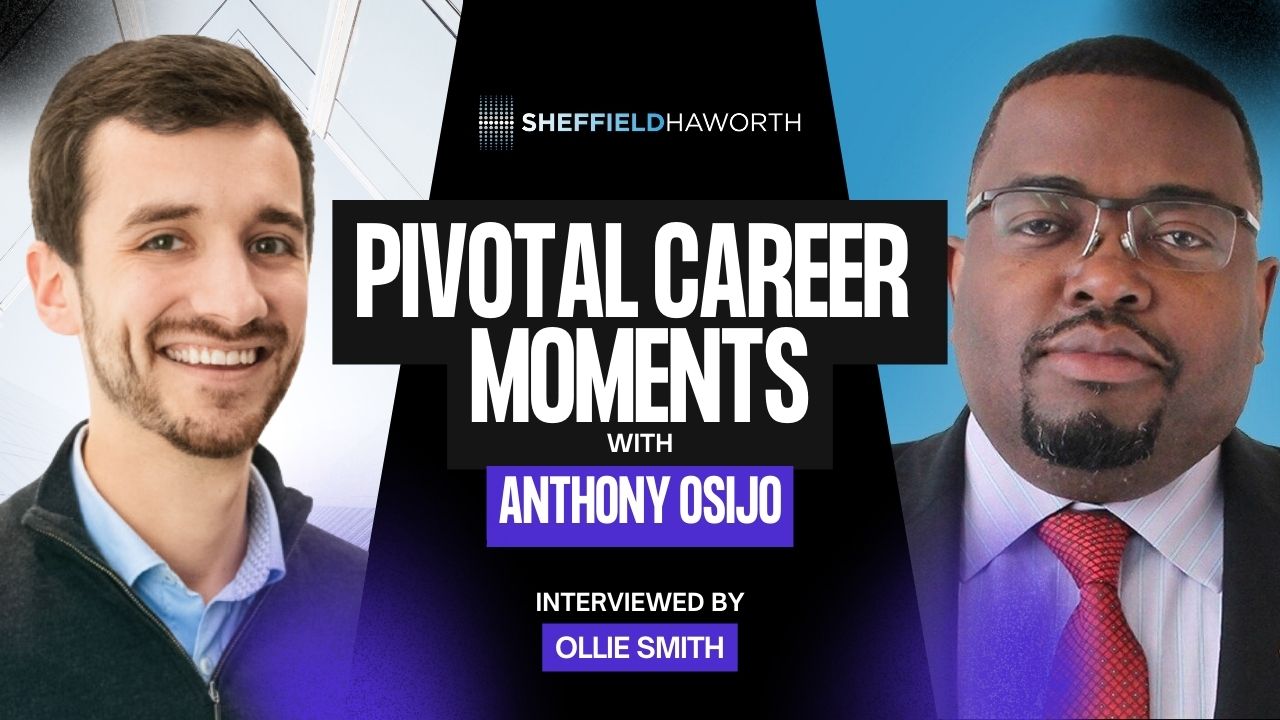Listen to the audio version of this article (generated by AI).
Now a software industry heavyweight, Phill’s career took off when he went to work with legendary Salesforce CEO Marc Benioff as his CMO. Today, he’s looking to foster a Silicon Valley-style mindset and support network in Europe with his organisation Boardwave. Andrew chatted with Phill about what he’s learned during his extraordinary career, the obstacles impeding growth in the European software industry, and what the future holds for Boardwave.
Q: You began your career in software engineering and moved through development into product management and into marketing. Why marketing?
I realised after doing a couple of years of software engineering at Oracle that it wasn’t for me. I felt more entrepreneurial. I tried to move towards the more commercial functions of the business and moved towards pre-sales, then product management.
It seemed like a natural progression from being a product expert into marketing and I spent a long time as a Marketing Director, VP of Marketing and Chief Marketing Officer at Salesforce – all over about 15 years.
Q: You went up through the ranks in marketing, including at Salesforce. What kept you in marketing?
Once Salesforce got started in Europe, six or seven of us left Siebel and joined Salesforce on the same day because we had become disillusioned with the company’s direction and leadership. Within a year, Marc, the CEO of Salesforce, asked me to move to California to be his CMO. I worked there for three years. Marc is the best marketeer I ever met, so it was an amazing experience to work with him through the early success of the company and their IPO.
When I returned to the UK, I decided I wanted to run my own business as CEO and not work for US-headquartered businesses – which I’d been doing since leaving university. I ended up working for a venture-backed business in Cambridge.
Q: What did you learn by becoming CEO of a much smaller business after Salesforce?
I joined a business with 40 people selling video distribution software over the internet. I thought a small company would move at pace, but they just didn’t have enough people to do the things I wanted to get done. In the end, we commercialised the proposition in the first year and made £5 million of revenue, but we found the product didn’t really work as expected once it was in the hands of our customers.
I went to the investors and said that unless they were willing to put another £25 million into rebuilding it, it wouldn’t be viable. They wanted me to keep going and generate more revenue but that didn’t sit right with me, as it meant delivering a sub-standard service to customers. I couldn’t persuade them to either sell the business or invest in it. I resigned, which gave them the focus needed and they ended up selling the business. I learned about venture capital and how investors can behave in bad times versus good times.
Q: You then ended up at IRIS, right?
That was a good opportunity because it was a later-stage investment. It was a viable business and already at £35 million turnover. And it was a division of a bigger company.
In the end, we sold the whole thing to HG Capital in 2011 and they created two separate companies. We continued the IRIS Software business, where I stayed as CEO for six years. I’d learned a lot in California about how to run a business in startup and scaling mode. These days IRIS must be something like a £250 million revenue business with over 2,000 people and remains in Hg ownership.
Q: At that point of being CEO of IRIS, did you feel like you had made it in terms of your career goals?
I’ve got imposter syndrome and never thought I was good enough. Working class background, first person from my family ever to get a degree. Throughout my spell in California I never felt good enough to even be in the room and thought that someone would eventually find me out.
I had a couple of epiphanies at IRIS about leadership, though. As a leader you’re trying to create the conditions where other people can make decisions. At a certain scale of business you can’t make all the decisions yourself, so you have to trust your team. Making the conscious effort to do that taught me to change from being a manager to a leader and build the team that could deliver. That was my big epiphany at IRIS. It changed my life and made me more productive and happier.
Q: There are two parts to your career – first working for US businesses, then for European businesses like IRIS and Exact as a CEO. Talk me through what you’ve learned from each business culture? What does each do better?
After Exact I came back to the UK retired, thinking that I’d do some things with my family that I couldn’t otherwise do later in life because of having been diagnosed with Parkinson’s.
At the beginning of 2022, I was reflecting on why European software companies can’t build global leaders in the way the Americans can. Typically, the first issue was access to capital. More money flowed into California than in Europe. That’s not the case anymore and there’s plenty of investors in European software.
Another difference has been that everybody knows everyone else in Silicon Valley. They go to the same schools. My youngest daughter went to prep school in Palo Alto with Steve Jobs’ kids. There’s a community feel to the place. They’re also culturally prepared to pick up the phone and talk to people about their challenges and issues, and how they’ve built their businesses.
I used to ride to work with Marc Benioff and he would call up Larry Ellison and say, “I’ve got this problem, what should I do?” Or, “I’m thinking about this, what do you think?” They share their knowledge, their wisdom, and their experience.
We don’t have this nurturing and supportive culture in Europe. We have knowledge, wisdom, and experience from the past 20 or 30 years but it is fragmented and isolated. Fragmented by distance and culture and language, but also by size and scale.
A young startup founder cannot easily get access to someone like a Marc Benioff or Leo Apotheker, who built SAP. Small companies can’t get access to the people who’ve got the knowledge.
The other major difference is appetite for risk. Californians have a higher appetite for risk and the reason is this: if you are a startup founder in Europe and you get to 20 or 30 million ARR, that’s a success. Someone will come along with a cheque book and offer to buy the business. Chances are, you might take it and go and do something else.
Meanwhile, the Californian is driving through Silicon Valley, where there’s Facebook and Salesforce and Oracle and Adobe. They don’t see selling a business at 30 million ARR as successful, so they have a higher appetite for risk. In Europe, CEOs and founders don’t complete their mission. They typically get to the halfway stage and stop.
That was why we came up with Boardwave, a community where all the best and brightest CEOs of software companies in Europe can get together, share their knowledge and experience and wisdom of what they know with other people to help them grow.
Q: Is there a difference in the cultural level of ambition?
I don’t think that’s necessarily true these days. People building software today don’t have that cultural legacy around their necks. A lot of the founders we see are building great businesses and are very commercially-minded, just like the US. They just need a bit of nurturing and support.
Take the example of Felix who runs Collibra. He set it up in his university bedroom in 2012 and now has a $200 million ARR business and a $5billion+ valuation from his investors. His mission is to build a billion-dollar business. He’s not stopping along the way. He’s going to complete the mission.
He’s a member of Boardwave because he wants help and support to get to a billion, with other people we can put around him at Boardwave. He can also help other people who are two steps behind him on the growth journey.
Q: What has the reception to Boardwave been like?
Within the first eight months we’ve got 650 CEOs and founders working together. When they join we ask if they would be prepared to be mentors and half of them accept.
It’s free to join if you’re a CEO or founder. I didn’t want to create a barrier to someone creating a company in their bedroom, or someone who’s trying to get product-market fit with their first million dollars of revenue.
We charge the people who supply the software industry: investors, lawyers, accountants, advisors. They pay us to be corporate members and sponsors of the community. We are an impact-driven business and work out what the community’s going to cost to run, not how much profit we can make. We divide the proposed costs up and tell the sponsors what the fee is going to be based on that.
I started back in March 2022 thinking I might get five or six sponsors and I’ve now got 45. Almost every big PE firm is in. Many of the large venture firms are in. As well as some of the bankers, recruiters, and other service providers.
I want to enable the next generation of founders to build global businesses. I want to build a better, stronger European software industry. I fundamentally believe that in the next 20 years national and international economies will compete based on their investment in technology. It’s fundamental to our success in the UK as it is in any other European market. But we’re lagging the US and China.
If we’re going to be a player on the global stage, we need a vibrant, successful, well-supported software and technology industry. If we don’t invest in it and give it the support it needs, it’s never going to get there.
Q: Looking at the macro-economic environment, how do you think this might play out in the next few years? What advice do you have for software founders and scale-ups in this environment?
My advice for those with external investors is to understand how they think about and manage their world. A lot of the issues you’ll face, you need to face together. When things start to get more difficult, that’s when you all need to be on the same page with the same plan going in the same direction.
Then consider whether you really need to raise any more money. Could you make the last investment round last longer by slowing growth and managing your cost base more carefully? Could you weather the storm and not take on more capital in the next nine, 12, 18 months (however long the recession takes)?
Q: Tell us about your hopes for Cure Parkinson’s
I was drawn to Cure Parkinson’s because they focus on urgent research to find a cure. They’ve put together a global panel of expert neurologists who meet every year and review a portfolio of research projects. They debate these projects and prioritise just five. Then Cure Parkinson’s tries to get those five projects funded – either through their own funds or via partnership and influence, such as the UK or US government or the Michael J Fox Foundation.
They also take drugs already approved for a different human condition and try to repurpose them for Parkinson’s, which means they can have new treatments come to market within five years rather than 10 or 20.
There are six stage-three trials for Parkinson’s drugs today in the world. Two of those are from Cure Parkinson’s. I’m involved in one of them myself, taking a diabetes drug that also appears to have neurological benefits. If this is approved, it will be the first major new Parkinson’s drug in 50 years.


















